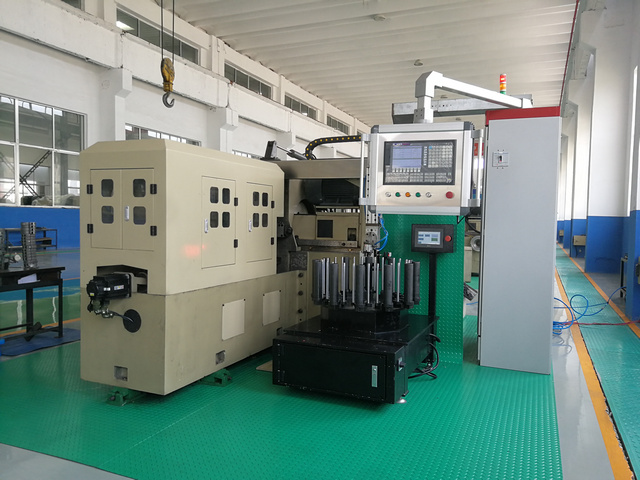Thinning Equipment
A thinning machine is a machine used to gradually reduce the thickness of a material to the desired thinness. It is mainly used in industries that require thin materials, such as semiconductors, optoelectronics, solar energy, flat panel display, etc.
The working principle of the thinning machine can use different technologies, including mechanical grinding, chemical corrosion, ion beam etching, etc. Mechanical grinding methods usually use grinding wheels or abrasives to grind the surface of the material so that it is gradually thinned. Chemical corrosion methods achieve thinning by soaking the material in a specific chemical solution and dissolving the surface layer. Ion beam etching uses a high-speed ion beam to peel the surface of the material, thereby achieving thinning.
Thinning machines usually require sophisticated control and monitoring systems to ensure the accuracy and stability of the thinning process. Some advanced slimmers are also equipped with automated systems that automatically adjust operations according to preset parameters and requirements. In addition, the thinning machine may also have auxiliary functions, such as surface cleaning and leveling, to improve the quality of the treated material.
The thinning machine has many advantages, making it widely used in various industries. The following are the main advantages of the slimming machine:
1. High efficiency: The thinning machine can quickly and accurately thin the material to the required thickness, improving production efficiency. They usually have sophisticated control systems and automation functions that automatically adjust operating parameters, reducing manual intervention and operating time.
2. Accuracy and consistency: The thinning machine can achieve high-precision control of the thickness of the material, and can reduce the material to a very thin thickness and maintain consistency. This is very important for materials that require a specific thickness, such as semiconductor chips, flat panel displays and other fields.
3. Resource saving: The thinning machine can reduce the thickness of the material to a minimum through the fine thinning process, thus saving the use of raw materials. This is especially important for some expensive materials or industries that need to use a lot of materials, and can help reduce production costs.
4. Improve material quality: The thinning machine can remove the defects or pollutants on the surface of the material, making the surface of the treated material more flat and clean, and improving the quality and performance of the material. This is particularly important for some industries with high material surface requirements, such as optoelectronics and solar energy.
5. Flexibility and versatility: The thinning machine can adapt to different materials and thinning requirements, with a certain degree of flexibility and versatility. They can adjust the operating parameters and processes to meet the requirements of different industries and applications, and have high adaptability.





